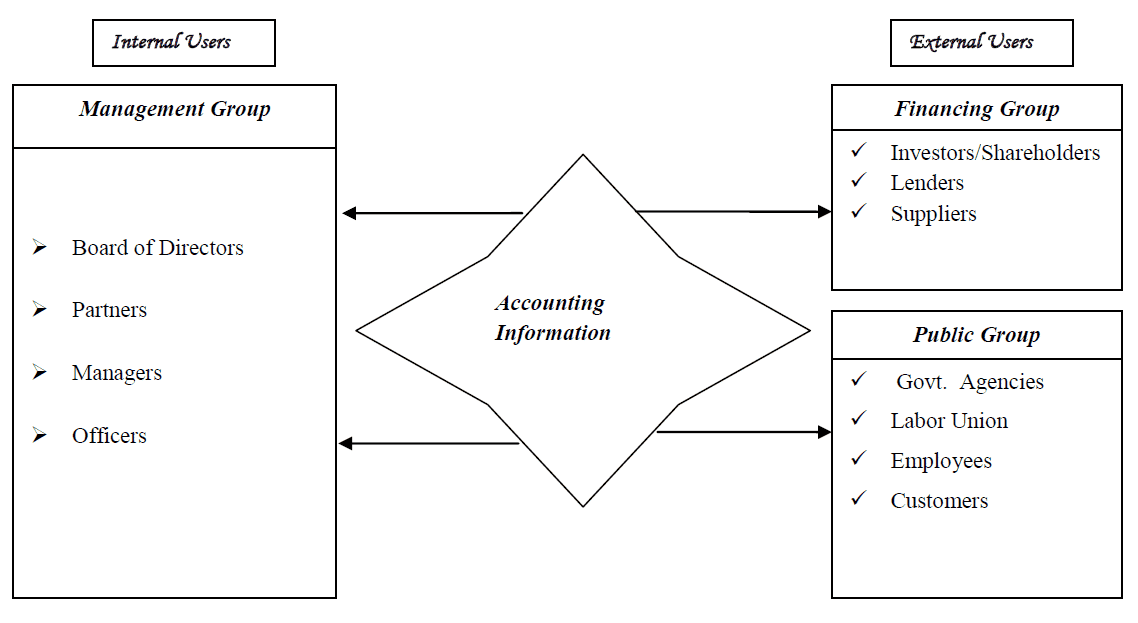User of Financial Statement
Previous Lesson: Difference between Financial Accounting and Management Accounting
Next Lesson: Organizational Structure
Accounting is the information system that identifies, records, and communicates the economic events to interested user of financial statement in an organization or outside. Accounting information is needed by two sets of parties, which are:
- Internal users of financial information
- External users of financial information
Internal Users of Financial Information
Internal users of financial information are parties who have directly connected with a company. Internal users require financial statements to make important business decisions that affect its continued operations. Financial analysis is then performed on these statements to provide management with a more detailed understanding of the figures. Financial accounting as well as management accounting use for internal purpose
External Users of Financial Information
External users of financial information are potential investors, customers, banks, government agencies and other parties who are outside the business but need financial information about the business for a diverse number of reasons:
- Prospective investors make use of financial statements to assess the viability of investing in a business
- Financial institutions (banks and other lending companies) use financial information to decide whether to grant a company with fresh working capital or extend debt securities (such as a long-term bank loan or debenture) to finance expansion and other significant expenditures
- Government entities (Tax Authorities) need financial statements to ascertain the accuracy of taxes and other duties declared and paid by a company
- Media and the general public are also interested in financial statements for a variety of reasons
Financial accounting provides economic and financial information for investors, creditors, and other external users. The information needs of external users vary considerably. Taxing authorities, such as the internal revenue service, want to know whether the company complies with tax laws. Regulatory agencies, such as the Securities and Exchange Commission or the federal trade commission, want to know whether the company is operating within prescribed rules. Customers are interested in whether a company like general motors will continue to honor product warranties and support its product lines. Labor unions such as the major league baseball players association want to know whether the owners have the ability to pay increased wages and benefits.
> > Read Types of Accounting.
References
Jain, S. .., & Narang, K. N. (2014). Advanced Accountancy. New Delhi: Kalyani Publishers.
Maheshwari, S. N., & Maheshwari, S. K. (2009). An Introduction to Accountancy. (10th, Ed.) New Delhi: Vikas Publishing House Pvt. Ltd.
Maheshwari, S. N., & Maheshwari, S. K. (2009). Financial Accounting. (5th, Ed.) New Delhi: Vikas Publishing House Pvt. Ltd.
Mukharji, A., & Hanif, M. (2003). Financial Accounting (Vol. 1). New Delhi: Tata McGraw-Hill Publishing Co.


0 Comments